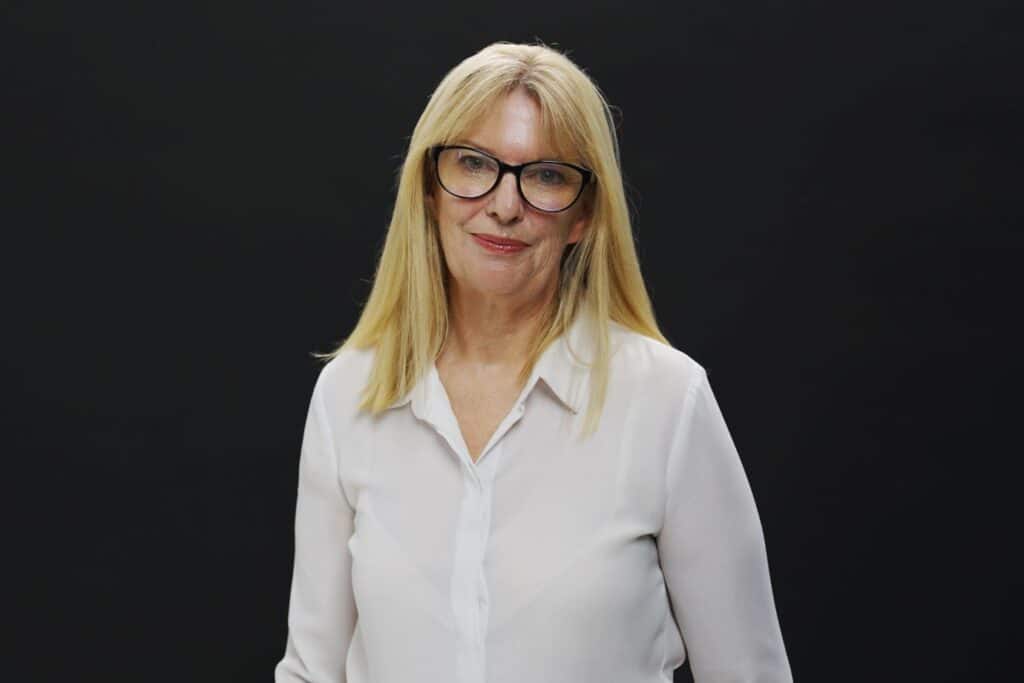There are just four more days until October 14, voting day for the referendum on the Indigenous Voice to Parliament.
If you are not one of the 2.2 million Australian adults who have already voted at early voting booths over the weekend, this Saturday you will show up at your local voting centre and write one of two simple words: Yes or No.
But there are still a lot of Australians who aren’t as informed or engaged as they should be in the lead up to the vote, something that co-founder and director at North Sydney Independent Denise Shrivell says must change in our country.
In her keynote address on the Women’s Agenda platform The Keynotes, titled ‘The real power of your vote and how too many aren’t using it’, Shrivell says voting is a “fundamental pillar of our precious democracy” and without it, things would change “for the worse instantly”.
“There’s something every Australian adult has to do,” she says.
“It impacts everything we do, every single moment of every single day. People fight for it and people die for it – and yet many of us don’t take it seriously.
“It’s our vote.”
What is voting and why do we do it?
After fighting hard, non-Indigenous women were granted the right to vote and to run as candidates in parliament 120 years ago. It wasn’t until 1962 that Aboriginal and Torres Strait Islander peoples were given the same right.
These days, Australians vote often in local, state and federal elections. But as one of the ten countries in the world to have mandatory voting, Shrivell says people don’t understand why it’s compulsory for us, and just how lucky we truly are.
“This is a gift to us,” she says. “We’ll realise the full benefits of this gift by increasing our interest in politics and having greater voter literacy.
“The general thinking, though not perfect, is that compulsory voting keeps our politics and our politicians much more centred as candidates running for election don’t need to activate a specific base to get their vote.”
With mandatory voting, everyone gets a say on the issues that affect them – from issues as relatively small as the roads we drive on, to broader challenges like climate change and homelessness.
“You can draw a direct line between these vital issues and the representatives we elect through the vote we all cast in the polling booth,” she says.
“Everything we do has a political decision underpinning it.”
So what?
Working in the political space during the 2022 federal election, as well as with the upcoming referendum, Shrivell has noticed something: a lot of people don’t seem to care about politics.
“Many Australians – even with the gift of compulsory voting – don’t take an interest in politics,” she says.
“Many of us don’t understand how our Parliamentary and Government structures work, don’t know how to get the full power of our vote and also don’t make a fully informed vote when we are required to walk into the polling booth.
“Many of us are failing to draw that direct line between the issues impacting us – and how we vote.
“This negatively affects all of us.”
Shrivell says voters taking a greater interest in politics and voting will result in improved political representation and policy decisions that literally govern what we do “every moment of every day”.
“It will not only inoculate us from those who are deliberately misleading us for their own agenda – it will also ensure the ongoing strength of our precious democracy,” she says.
Becoming an informed voter
The first step of improving voter literacy, Shrivell says, is realising one important thing: no one is coming to save us.
“It might even be argued that some parties and politicians don’t want us to take an interest in politics. At school and after school there’s no consistent effort put into teaching us how our Government systems work and how to vote,” she says.
“There is no cavalry riding over the hill. It’s up to each of us as individuals to decide to act.”
Next, Shrivell says to look for issues you care about, find your voice on the issue and see if it aligns with the politicians that represent you.
“Find out how your local representatives vote and if you don’t like it let them know. They work for us after all,” she says.
Taking a greater interest in politics is important as well, but sourcing them from varied and verified media outlets is just as important.
“Look for commentary from subject matter experts and don’t be a passive news consumer,” she says. “Media literacy is just as important as voter literacy.”
Doing all this – engaging in democracy, getting involved in the issues that surround our everyday lives – will help us make an informed vote, Shrivell says.
“It’s time we engage more in our democracy, take a greater interest in our politics and better exercise the power of our vote,” she says.
“The consequences of this will perhaps be the most profound and valuable legacy we can pass on to our kids and our grandkids – as so many of the issues we’re voting on today will impact them tomorrow.
“Let’s not doubt what each of us collectively can achieve.”
You can find Denise Shrivell’s full keynote address, plus several other speakers, via the Women’s Agenda Keynotes platform. The Keynotes is a Women’s Agenda app supporting employers to empower their emerging and established leaders to respond to the biggest challenges of our time.


